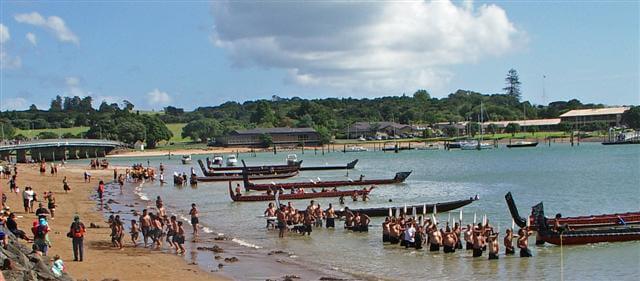
Tom Roa
Following up on events at Waitangi on our National Day a rubric of the present Coalition Government as stated by all the partners of that Coalition, is the encouragement of a better understanding of Te Tiriti o Waitangi/The Treaty of Waitangi in order to foster a unity amongst all those who belong to this country, Aotearoa/New Zealand.
We should, and most of us do, welcome that sentiment wholeheartedly.
Te Tiriti/The Treaty, its importance to and impacts on Aotearoa/New Zealand, has long been a topic of discussion and debate on every marae, at every Māori event of any note throughout the land. Other-than-Māori communities and individuals have joined that discussion in particular since Dame Claudia Orange’s seminal 1987 text and the subsequent sesquicentennial celebrations of the signing of Te Tiriti/The Treaty in 1990.
The adoption (principally by Government Departments) of the “… three ’P’s’ of the Treaty …” as the principles of partnership, participation, and protection was an assertion by those Government Departments that those three Principles underpinned the relationship between the Government and Māori under the Treaty of Waitangi.
Those three principled words do not appear anywhere in the original wording of the English version of The Treaty, nor do they appear in translation in the Māori of Te Tiriti. Yet they gained a considerable support from a significant number of New Zealanders.
Over the next few weeks I intend to provide some commentary for the readership of Te Awamutu and Cambridge News on perspectives on Te Tiriti o Waitangi – The Treaty.
That commentary will be a considered, personal opinion of Te Tiriti/The Treaty’s importance to us in this area and further afield. I am hopeful that it might contribute to the discussion under way.
Underpinning my discourse is my whakapapa not only to my Waikato-Maniapoto, Ngāti Apakura ancestry and but also to my descent from my parents’ Irish, Scottish, and English forbears.
I begin this commentary with the Contra Preferentem’ rule, which is a legal doctrine recognising that where the terms of an agreement may be ambiguous, the preferred meaning should be the one that works against the interests of the party who provided the original wording,
That is, the Māori Language translation of The Treaty takes precedence over the English.
Next week I will discuss the introductory preamble to the articles and the fourth, oral article which many commentators ignore, and the English and Māori versions.









